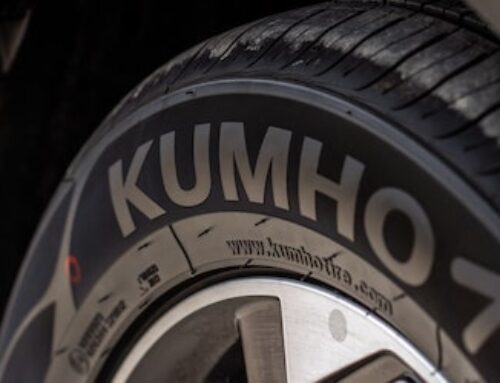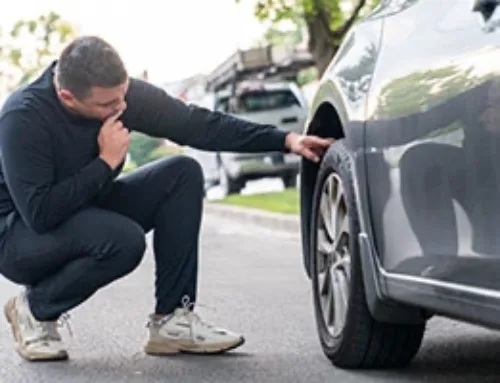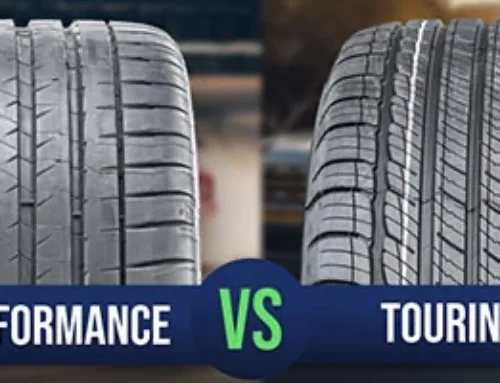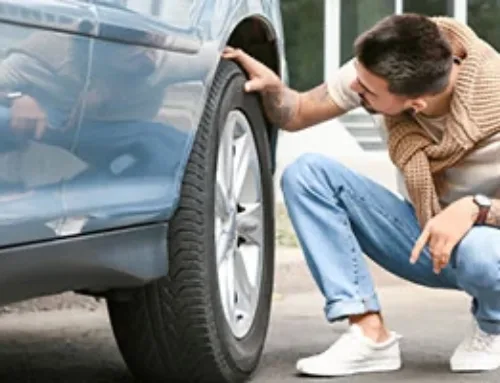Table of Contents
As car owners, you know that keeping your tires in good condition is vital for your safety. But knowing when to switch out your tires and buy a new set is a tricky question. With tight budgets, the tire replacement cost is something you need to consider, but cutting corners on your tires can lead to higher fuel costs and even accidents. In this article, we look at how to tell when you should replace your tires and what you can do to keep them in good condition for longer.
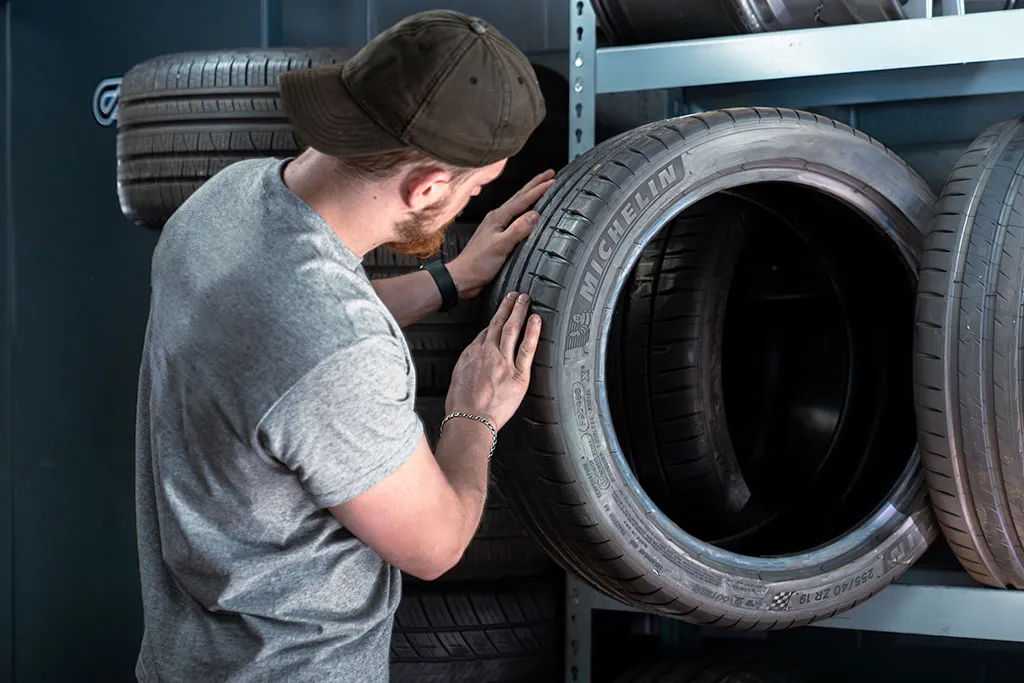
How long do tires last on average?
Most tire experts agree that tires on a standard family car should last, on average, for 50,000 miles. And with the average American driving around 12,000-15,000 miles each year, that means they should last around 3-4 years. There are plenty of factors that will influence whether your tires need to be replaced, and we look at them all below.
How do I know if I need new tires?
We wish we could tell you that there’s one simple way to know if you need new tires, but it comes down to a few factors. We detail them all below so you can understand if replacing tires should be added to your to-do list.
Signs that you should replace tires—besides the tread depth
There are several signs that the time has come to buy new car tires!
Tread depth: One of the most obvious signs that your tires need to be replaced is if the tread depth has worn down to 2/32″ or less. This can be measured using a tread depth gauge or using a penny. To do the penny test, place a penny into your tire’s tread with Lincoln’s head pointing downwards. If part of his head is hidden, your tire tread is deep enough, but if you can see his whole head, it’s tire replacement time!
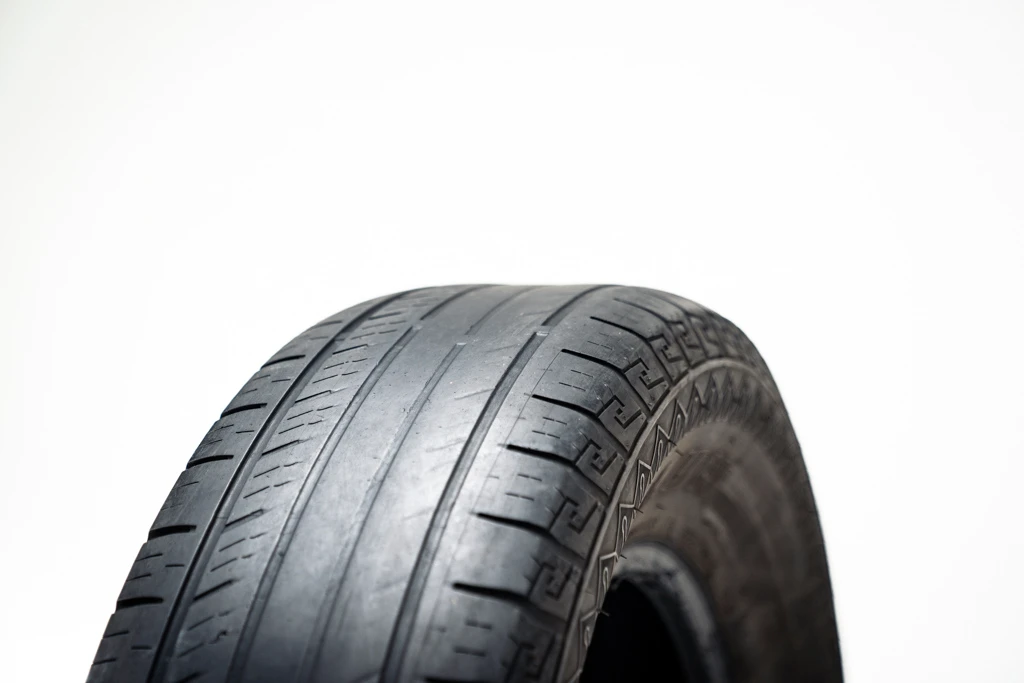
Visible wear and tear: This is a quick and easy visual method of checking the quality of your tires. You should look out for cracks or other signs of damage on the sidewalls and tread of your tires. If there are signs of damage, you should take your car to a specialist who will be able to evaluate the level of damage and advise whether tire replacement is essential now or if you can wait a while.
Age: Rubber is a natural material that deteriorates with time, even if your tires haven’t been used much. Many environmental factors, like sunlight, extreme temperatures, and how they are stored, can cause your tires to deteriorate. The general rule of thumb is that you should replace tires 6 years after their manufacture date, but you can stretch it to 10 years if they have no signs of visible damage. But at the 10-year mark, you should definitely replace your tires!
Don’t let the best tire deals & tips roll by!
Subscribe to our newsletter
Unusual wear patterns: If you notice that your tires are wearing out unevenly, which can show up in different amounts of tread wear on certain areas of the treads or signs of cupping in the sidewalls, this may necessitate a new set of tires. This is likely due to wheel misalignment or a lack of tire rotation. This can be solved by aligning your wheels regularly and getting your tires rotated as part of your regular vehicle maintenance schedule.
If you’re unsure whether your tires need to be replaced, we always recommend getting a professional to inspect them. A tire specialist or mechanic will be happy to assess the overall condition of your tires and recommend the best course of action.
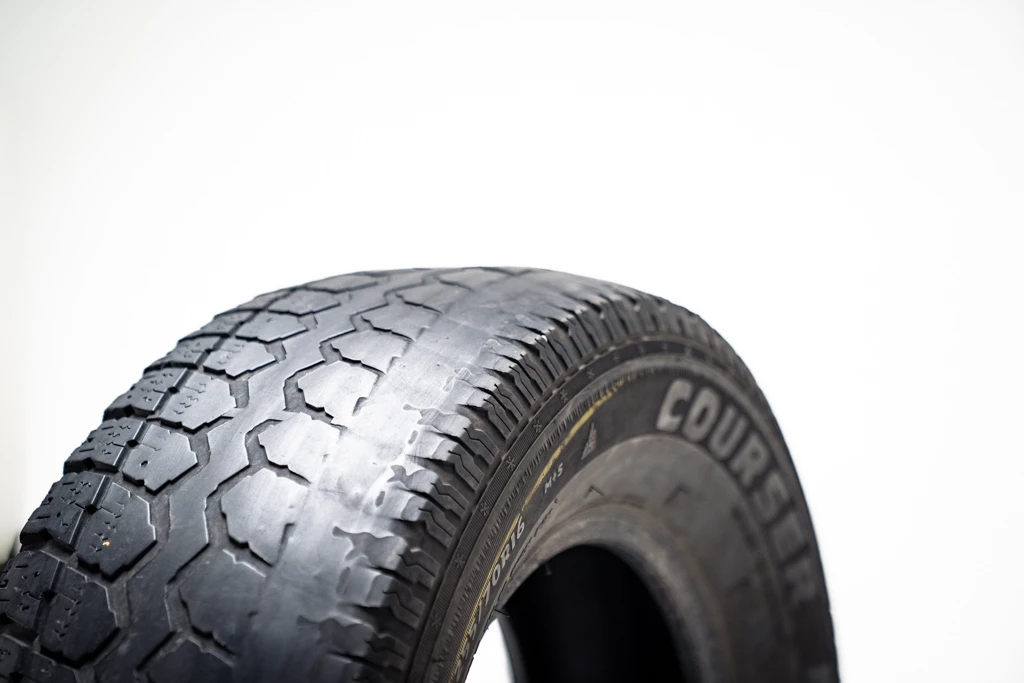
Replacing spare tires
We often forget about our spare tires, which are just as important as our regular ones. If you haven’t used your spare and it has been stored well and not exposed to excessive heat and cold, you should replace it 10 years after its manufacture date. If it’s newer than 10 years old, you should still inspect it regularly for signs of aging and damage.
What can I do to extend my tire’s lifespan?
Fortunately, there are a few things you can do to make sure your tires last as long as possible. Here are a few tips to keep your tires in good health!
Tire pressure: regularly check your tire pressure and make sure your tires are filled to the correct level of air pressure recommended in your vehicle’s owner’s manual. Improper inflation, whether over or under-inflated, can cause your tires to wear out unevenly.
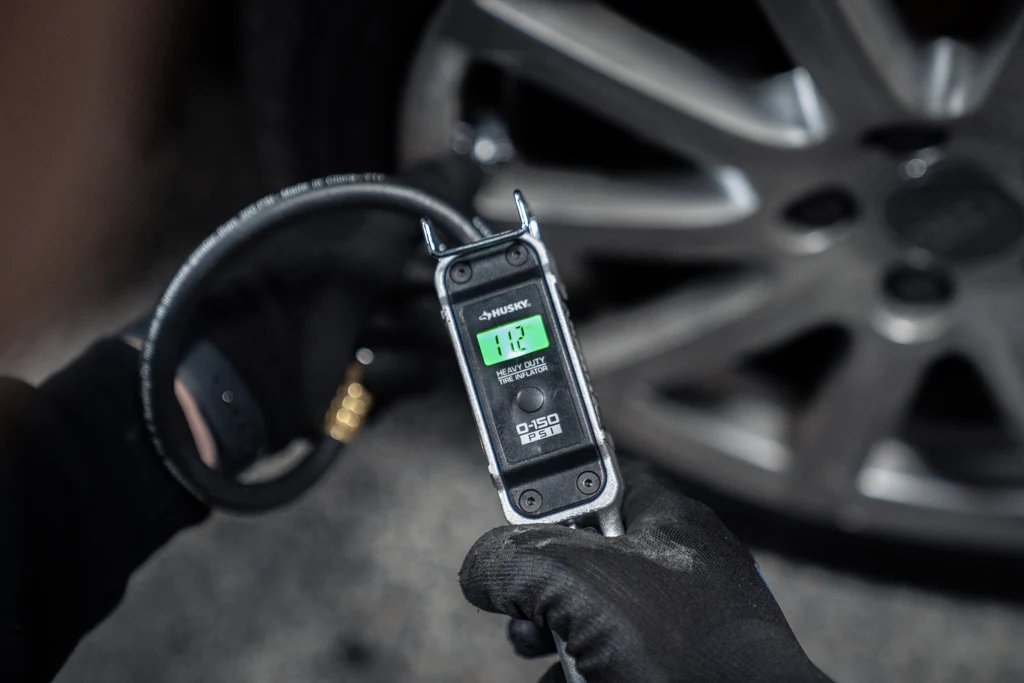
Tire rotation: You should get your four tires rotated at your local tire shop once or twice a year. This will increase their life as your front tires wear differently from your rear ones.
Wheel alignment: Another thing that will help with even wear on your tires is getting wheel alignment done twice a year. This will ensure you drive more smoothly. If you notice your steering wheel veering to one side or the other when driving, this can be a sign of misaligned wheels.
Seasonal tires: If you live in an area with very cold winters, you should switch from regular to winter tires for the colder months. Not only are they designed to help you drive more safely in winter road conditions, but they are made from a rubber compound that can better withstand freezing temperatures.
If you keep up with all these maintenance steps regularly, your tire’s tread wear will be more even, and you are likely to get several years of happy driving and even save money in the long run.
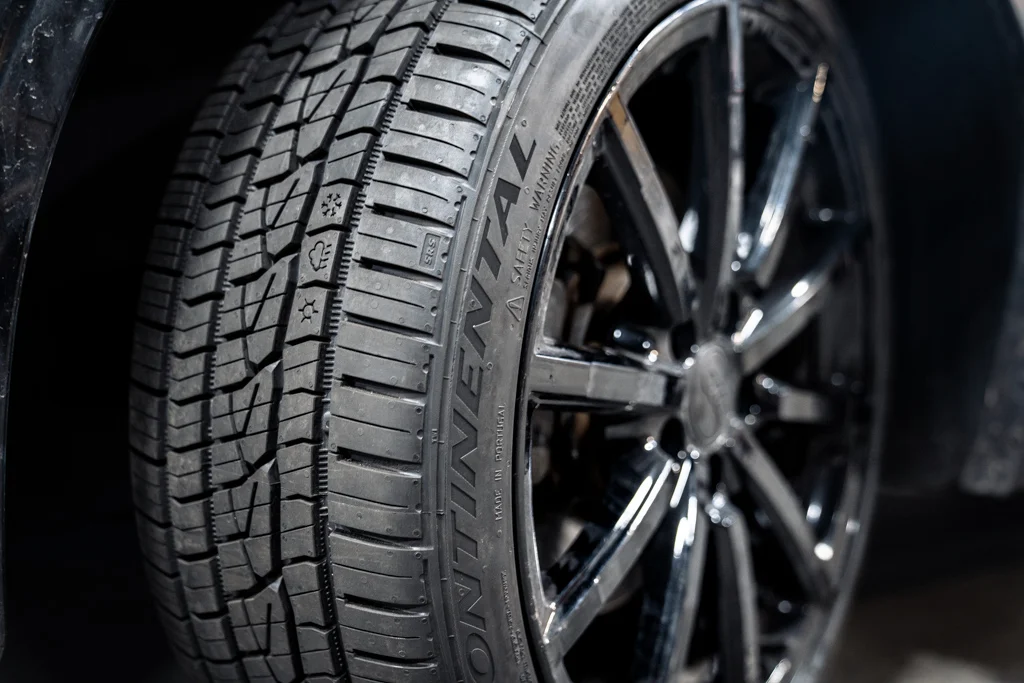
How long should tires last on average?
The average set of passenger car tires should last for around 50,000 miles, although this can vary greatly, depending on many different things. These can include the type of tire, driving habits, weather conditions, maintenance, and the manufacturer’s specifications. High-performance tires generally have a shorter average lifespan (approximately 40,000 miles), while truck and SUV tires have a slightly longer average lifespan (approximately 60,000 miles).
Always remember that these are just rough estimates, so you should check your tires regularly and look after them well to ensure you get the most out of them. We recommend doing regular tire rotations, checking your tire pressure, and getting regular inspections to help extend the life of your tires.
Frequently Asked Questions
Should I change my tires every 2 years?
No. Every 2 years is probably too often to change your tires unless you have very high mileage or don’t look after your tires well! With the average lifespan of passenger car tires being around 50,000 miles and the average American driving about 12-15,000 miles per year, most people will likely be able to get 3-4 years out of a set of tires.
Is it better to change all 4 tires at once?
We recommend that you should replace all four tires at once to ensure you have an even, well-balanced driving experience. This is especially true if you have an all-wheel drive vehicle. However, if you have a front-wheel drive vehicle, you can get away with replacing only two tires at a time. Always ensure they are as similar as possible to the remaining ones and definitely in the same tire category. The new tires should always be installed on the rear axle, which may mean switching your older tires to the front.
How often do I need to replace my tires?
In general, you should replace your tires after about 50,000 miles, but this will depend on the wear to the treads and sidewalls, as well as any damage or other problems with the tires. Ideally, you will replace your tires at least every 6 years, and you should always replace any that were manufactured 10 years or more ago.
How do you tell if your tires need replacing?
There are a few easy ways to tell if you need to get your vehicle’s tires changed. Firstly, check the tire age—if they are 10 years old you should replace them immediately. If they are 6 years old or older, look for any signs of wear and tear and strongly consider buying a new set.
Are tires only good for 5 years?
While 5 years is often a good time to replace most tires, they are not only good for 5 years. The standard recommendation is to replace your tires after 6 years, or when they have less than 2/32” tread depth, or if they have obvious signs of damage and aging. However, with proper care and low mileage, they may last up to 10 years. Once a tire reaches 10 years of age, you should definitely swap it out for a new tire, though, to ensure safe driving for you and your family.


